Unlocking Equity: Social Justice Research for K-12 Educators
We believe in the transformative power of research and its potential to shape and enhance classroom instruction and policies. By making social justice research readily available to educators, we pave the way for informed, research-based changes that could lead to more equitable educational outcomes.

Race and culture
Explore free resources, scholarly articles, and books that will help you understand how race and culture impact students' experiences in school and their opportunities for success.
How Frequent Teacher Referrers Expand Racial Disciplinary Disproportionalities
This paper analyzes how a small group of educators in a large, diverse urban school district doubled the racial discipline gap in their schools and it makes recommendations for how leaders can successfully address and mitigate such disparities.
Educators’ Experiences With Censorship
Teachers and librarians face overt and preemptive censorship when selecting books for students, often resulting in the removal or exclusion of diverse literature. This study reveals educators’ perceptions of censorship and the resources they use to combat it amid a rise in book challenges.
What is Racism? [Book Excerpt]
This excerpt from H. Richard Milner IV's The Race Card provides educative tools to support leaders in building knowledge, attitudes, understanding, and insights about race, racism, whiteness, and anti-Black racism.
White Caregiver Perceptions of Equity Work in Schools
Many schools have increased their diversity, equity, inclusion, justice, and anti-racism (DEIJA) efforts in response to events like the murder of George Floyd. This study explores the perspectives of various stakeholders at an elite, independent K-12 school in a major U.S. metropolitan area where DEIJA initiatives have been implemented.
Advance Justice, Repair, and Belonging in Schools... Now [Webinar]
Through honest, sustained, and critical dialogues in "brave spaces," educators can address disparities and create equity-centered schools and communities. In this webinar, author, professor, and president of the American Educational Research Association Tyrone C. Howard shares a solutions-oriented approach to fostering welcoming, affirming, and rigorous learning environments.
Today’s Civil Rights Fight: What’s Math Got to Do With It?
Research shows that there are three common systemic barriers to Black student participation in STEM programs at all grade levels. This article reviews the research, describes those barriers, and offers recommendations for overcoming them, with particular attention given to the most impactful leadership moves.
![Antiracist Reading Revolution [Grades K-8] book cover book cover](https://corwinpress.azureedge.net/sp-corwinpress-prod/images/default-source/books/book-285663-v285663-130242-u63838490040000000.jpg?sfvrsn=b4156fb9_0)
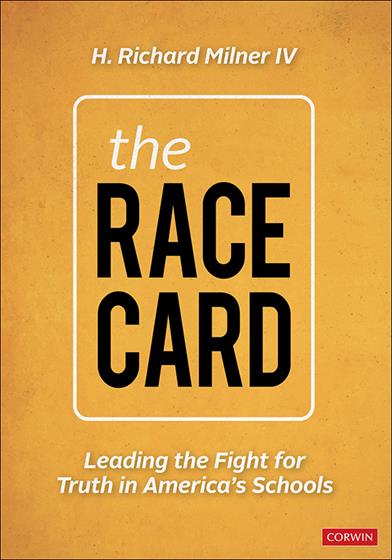
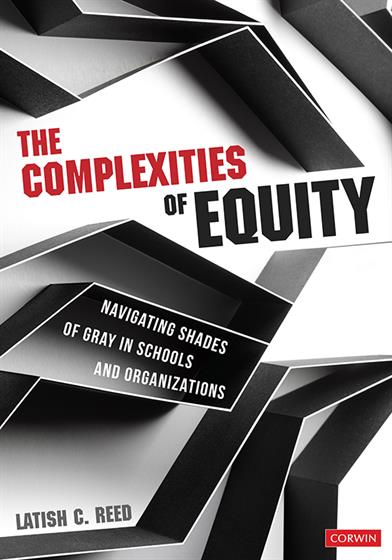
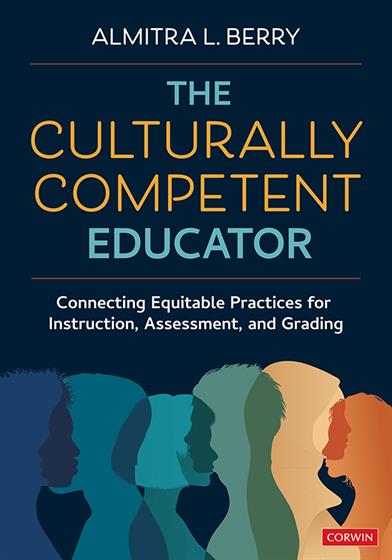
Latinx Students' Perceptions About Their Experiences
Latinx children face multiple challenges in school, including social isolation and stereotypes from both community members and educators. Through interviewing these students and emphasizing the value of student voice, researchers uncovered four key needs that could be used to improve educator practice and student experiences in your school.
Black History Curriculum
Incorporating culturally relevant education in K-12 classrooms presents many schools with both systemic and curricular challenges, but teachers and leaders have found practical responses that can lead you in the right direction.
Strategies for Antiracist Educators [Blog]
This collaborative blog post from Sonja Cherry-Paul, Tricia Ebarvia, and Edward Fergus includes: five commitments for antiracist educators, three guidelines for antiracist educators, and an exploration of how to develop cultural competency to interrupt discrimination.
Improving Relationships and Student Outcomes Through Restorative Practices
What do you know about restorative justice? Are you familiar with its basic principles? This review of literature offers exercises and resources to educators looking to implement restorative practices in their classrooms, especially for students with mild to severe emotional or behavioral disorders (EBDs).
Navigating the Complexity of Equitable Decision-Making [Webinar]
Drawing on over two decades of experience as a college admissions counselor, teacher, teacher-leader, school administrator, assistant professor of leadership, and organizational equity leader, Dr. Latish Reed introduces The Equity Empowerment Continuum and facilitates conversation about our individual and organizational commitment to an equity agenda.
Culturally Adapted Support for Black Male Learners
Black students aged 5 to 21 are more likely to be identified with emotional and behavioral disorders (EBDs) than students in any other racial group, and research has shown these students are both overrepresented and horrifically underserved. In this study, researchers describe a successful multi-tiered approach to treating students with EBDs that could change how your school serves these children.
Educational Equity in the K-12 Classroom [Book Excerpt]
How do you define equity? In chapter 1 of The Culturally Competent Educator, Almitra L. Berry introduces a simple definition along with the Four Equity Indicators—meritocracy, standards, impartiality, and asset allocation—and how these indicators present themselves in foundational skills and disciplinary actions.
Supporting Equity in Cooperative Mathematics Learning
Ensuring that mathematical instruction is both comprehensive and equitable requires careful planning and reflection. This review of literature highlights some of the most critical cooperative practices that teachers can enact and some of the most important questions they need to ask when working to improve mathematical outcomes and understanding.
Racial Identity and Civil Rights Literature for Black Children
Educators face numerous challenges when teaching the Civil Rights Movement, and students suffer whether the cause is insufficient curriculum materials or a lack supporting resources. But engaging with the difficult topics raised by this subject matter is crucial for student development and can improve everything from racial understanding to teacher practice.
Language
Explore teaching strategies, research, and policies that educators can use to tap into the strengths of multilingual learners and support their wellbeing and academic achievement.
Does Reclassification Change How English Learners Feel About School?
The impact of social-emotional learning (SEL) on academic success is well-documented, but its usefulness for English Learners (ELs) is not widely discussed. This study shows how the reclassification process for ELs can both positively and negatively affect SEL skills, which may have implications for both educators and policymakers.
Social Emotional Learning for Multilingual Learners [Webinar]
Through real-world, easy-to-implement examples of practical tools and strategies, Diane Staehr Fenner and Mindi Teich provide plenty of ways you can embed SEL instruction seamlessly into your repertoire to foster your MLs' language development, well-being, and academic success.
Elementary English Learner Classroom Composition and Academic Achievement
Research consistently shows that diverse classrooms with integrated language proficiency policies are more beneficial to English learners than classrooms segregated by student ability. But guidance for developing such policies is scant. This study fills that gap and shows that integrated approaches also benefit teachers, English-proficient peers, and the social-emotional outcomes for all students.
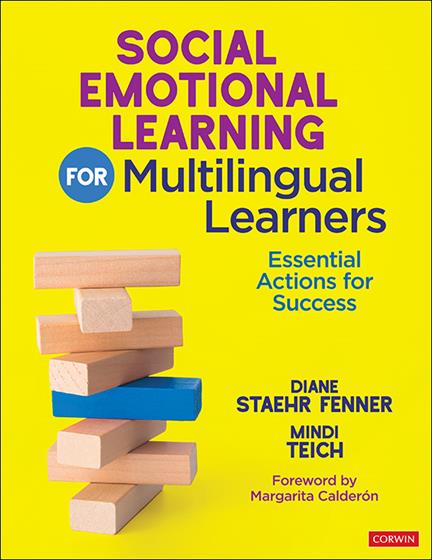
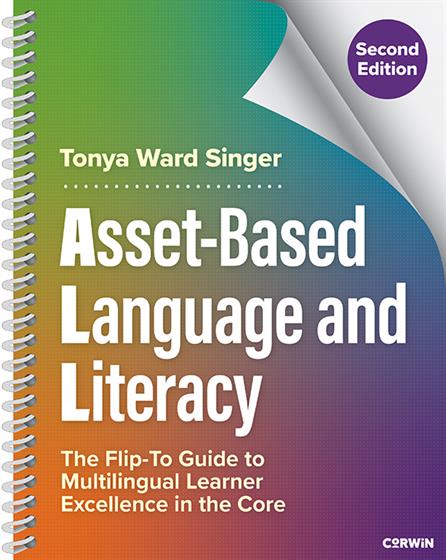

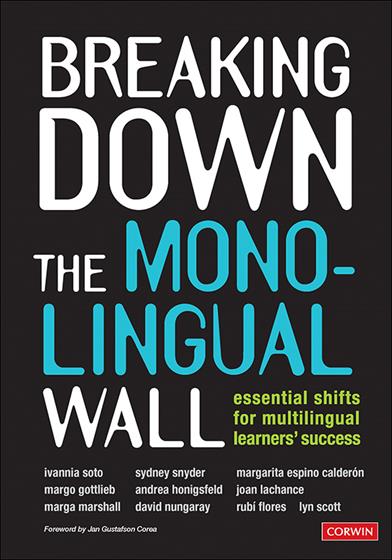
Asset-Based Scaffolding to Accelerate Learning, Language, and Literacy [Webinar]
In this interactive webinar with Tonya Ward Singer, learn an asset-based framework that helps teachers and teams deepen student access to complex texts, conversations and academic writing. Leave with essential reflection questions and practical tools to reorient the ways we lead, teach and to collaborate ensure all students, including Multilingual Learners, thrive with rigorous content and literacy learning.
Affordances of Multilingual and Multimodal Literacy Engagements of Immigrant High School Students
Educators are tasked with providing immigrant students with a smooth and equitable transition to school, a challenge that goes beyond ensuring students learn the primary language of instruction. These students confront racism and negotiate power imbalances pertaining to their multiple and intersecting identities, but research shows that multilingual and multimodal narratives can help address those difficult topics.
The Gift of Multilingualism [Book Excerpt]
In this foreword to Breaking Down the Monolingual Wall, CEO of the California Association of Bilingual Educator Jan Gustafson-Corea unpacks the historical context of multilingual education in the United States and summarizes the shifts required to expand the reach of multilingual education.
Gender identity
How can schools ensure students feel safe to explore and express their identities, and what's at stake for LGBTQ+ students who don't feel a sense of belonging at school? Explore research, resources, and books focused on creating environments where all identities are affirmed.
Improving Mental Health Among Transgender Adolescents
Transgender adolescents exhibit depression at a rate four times higher than their cisgender peers, and they are five times more likely to attempt suicide. Though research on the topic is relatively new, there are self-compassion strategies and interventions that could lead to improved mental health outcomes for this vulnerable group.
"Discomfort" as Resistance to Transgender Student Affirmation
Using interviews from a small rural school, this study documents how concerns for personal and community discomfort impaired accommodations for a transgender child in elementary school. Examination of that discomfort reveals important patterns and mistakes educators can recognize and address when seeking to better support transgender students.
Creating Identity Safe Schools and Classrooms [Video]
This collection of three videos explains the concept of identity safety, the application of identity safe practices in schools, and the need for identity safe practices today to support LGBTQ+ students.
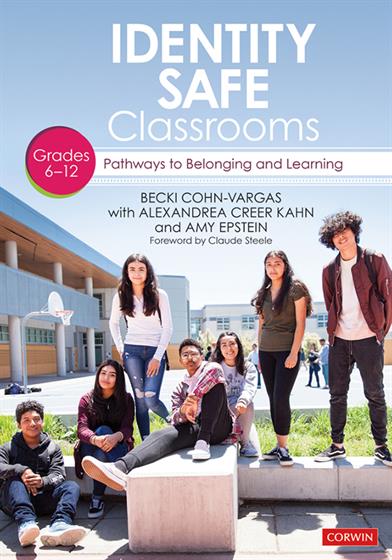
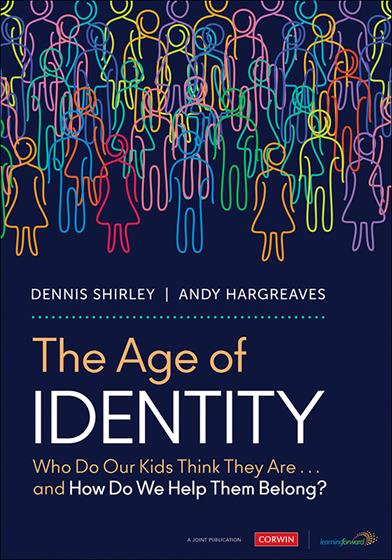
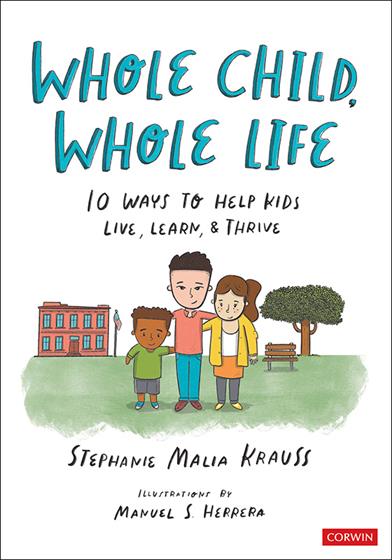
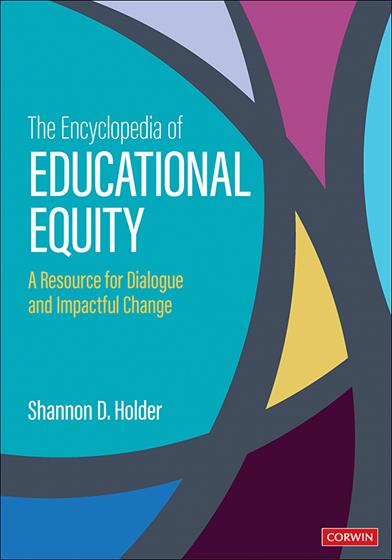
The Urgency of Shared Educational Equity Language [Blog]
A common language serves as the foundation for equity work, ensuring clarity and consistency across educational settings. Without it, equity initiatives risk misrepresentation or inconsistent implementation.
Gender Disparities in AP Computer Science Exams
Despite increasing demand for computing jobs, only one of every five PhDs in Computer Science (CS) are earned by women, and this underrepresentation is echoed in high school Advance Placement (AP) courses. This paper focuses on how schools can remedy that disparity and create more equitable classrooms for girls.
The Age of Identity [Webinar]
How can educators work with a rising generation to help ensure that they have a strong and positive sense of their many identities? Dennis Shirley and Andy Hargreaves provide principles and strategies for helping educators to address the increasingly insistent need of young people for guidance in becoming their best selves.
Behavior, wellbeing, and inclusion
The scholarly articles, free resources, and books below will enable educators to better understand student behavior and wellbeing, and create inclusive classrooms that create the conditions for all students to succeed.
How Frequent Teacher Referrers Expand Racial Disciplinary Disproportionalities
This paper analyzes how a small group of educators in a large, diverse urban school district doubled the racial discipline gap in their schools and it makes recommendations for how leaders can successfully address and mitigate such disparities.
Building an Early Childhood Diverse Booklist for Social and Emotional Learning
Are you an early childhood educator interested in using picture books to teach social and emotional skills? Learn how these books can develop the five key competencies of SEL: self-awareness, social awareness, self-management, relationship management, and responsible decision-making.
The Rebellious Read Aloud [Webinar]
Children yearn to see themselves in our classrooms. Vera Ahiyya discusses how our culture reveals itself in the classroom and make connections between diversity and our students using children's books. Confidently engage in conversations about diversity and inclusion and identify higher-order thinking questions to use with children's books about diversity.
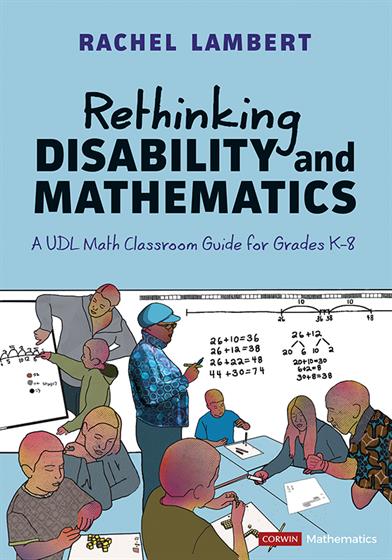


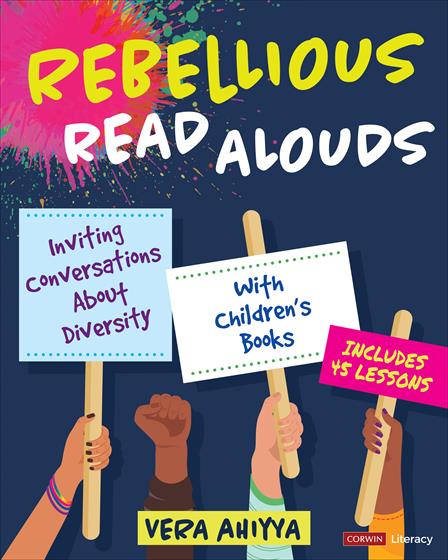
How is Student Behavior Going? [Podcast]
How much training did you get on classroom management before you became a leader or teacher? Larry Thompson is on a mission to elevate this work, so it stands shoulder to shoulder with all we know about curriculum and instruction. He views poor behavior as a skill deficit that can be improved with strategic coaching.
Inclusion, Absenteeism, and Disciplinary Outcomes for Students With Disabilities
Students with disabilities (SWDs) in the U.S. face higher suspension and chronic absenteeism rates, leading to decreased learning opportunities and heightened risks of dropping out and over-representation in the juvenile justice system. This article analyzes five years of demographic, attendance, and discipline data for SWDs in Michigan’s K-12 public schools to explore the impact of inclusive education on these outcomes.
Prevent–Teach–Reinforce for High School Students With Emotional and Behavioral Disorders
Struggling with implementing behavior intervention plans (BIPs) for high school students with emotional and behavioral disorders (EBDs)? This article explores Prevent-Teach-Reinforce (PTR), an effective BIP evaluated in a high school setting with two teachers and three students, aimed at reducing office discipline referrals, suspensions, and expulsions.
Promoting Inclusion in Play-Based Learning for Children With Developmental Disabilities
Are you a Kindergarten teacher who believes in the benefits of play-centered curricula for all children, including those with neurodevelopmental delays and disabilities (NDD)? This study reveals how eight kindergarten teachers in Ontario, Canada, conceptualized and fostered the inclusion of children with NDD in their play-based classrooms.
Rethinking Disability and Mathematics [Webinar]
Dr. Rachel Lambert discusses how math and special education teachers resist deficit framing of students with disabilities, designing math classrooms in which neurodiverse and disabled students can thrive. With the narratives from teachers featured in her book, she uses UDL Math as a framework to understand the work of these teachers.
Supporting Equity in Cooperative Mathematics Learning
Ensuring that mathematical instruction is both comprehensive and equitable requires careful planning and reflection. This review of literature highlights some of the most critical cooperative practices that teachers can enact and some of the most important questions they need to ask when working to improve mathematical outcomes and understanding.